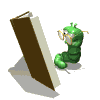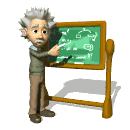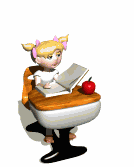|
Literacy problems to solve for Key Stage 1, 2 and 3
How
many different ways can you re-order these words to make a new sentence?
The
old man wearing the purple hat is my dad.
Rearrange the following letters to make new words:
BAD
WOLF
TEN
EACH
FELT
TEASER
CHEAT
CLAM
MITE
SISTER
FOAL
Bits and pieces
Lots of words in English are made up of bits stuck together. For example
the word unwanted is made up of the word want with
un- at the beginning and -ed at the end.
- a bit like un- that can be stuck onto the beginning of
a word is called a prefix.
- a bit like -ed that can be stuck onto the end of a word
is called a Suffix.
- a word like want that you can stick bits onto is called a stem.
-
Read through the list below,
- Make a list of the different prefixes you can find
- Make a list of the different suffixes you can find
What do prefixes and suffixes do?
Prefixes
A prefix will usually change the meaning of the stem word, but it
won't change the type of word it is. For example, in this sentence:
I like school but i dislike homework
The prefix dis- changes the meaning of the word like,
but the new word is still a verb and still in the present tense.
Suffixes
-
A suffix may change the tense of a verb: like -
liked or the person of a verb: I like - he likes.
- A suffix may change the number of a noun: dog - dogs
- A suffix may change the type of a word.
e.g. The suffix -ure changes the verb pleas(e) into the noun pleasure.
The suffix -able changes the verb afford into the adjective
affordable.
Choose five prefixes from the list. In each case find two words that
use the prefix (e.g. unkind and unlikely).
Can you explain how each prefix changes the meaning of the stem words?
Choose five suffixes from the list. In each case find two words that
use the suffix (e.g. dogs and horses). Can you explain how
each suffix changes the type or meaning of the stem words?
SO WHAT?
Knowing about prefixes and suffixes can help you in two ways:
- It can help you with spelling long words which are often made up
of short words prefixes or suffixes
- e.g. dissatisfy = dis + satisfy
- disappointment = dis + appoint + -ment
- It can help you to work out the meaning of words. For example, if
you know that happiness means being happy you can
work out what liveliness or strangeness or cowardliness
means.
Play the 'bits and pieces' game.
Bits and pieces game
| able |
Interviews |
Slime |
| act |
love |
slimy |
| action |
lovely |
some |
| active |
nation |
somehow |
| appoint |
national |
something |
| appointing |
pig |
somewhere |
| appointment |
piglet |
stand |
| attract |
please |
standing |
| attraction |
pleased |
stands |
| attractive |
pleasing |
thing |
| bear |
pleasure |
unbearable |
| disappoint |
promis(e) |
uncompromising |
| disappointed |
promised |
uncompromisingly |
| disappointing |
promising |
under |
| disappointment |
promises |
undergrowth |
| displease |
react |
understand |
| displeased |
reaction |
understanding |
| displeases |
real |
understands |
| displeasing |
realise |
unreal |
| displeasure |
realistic |
unrealistic |
| dissatisfaction |
really |
unreliable |
| dissatisfy |
rely |
unskillful |
| ever |
relied |
unskillfully |
| grow |
relies |
unwilling |
| growth |
review |
unwillingly |
| how |
reviewed |
view |
| however |
reviewing |
viewed |
| interact |
satisfaction |
viewing |
| interaction |
satisfied |
views |
| interactive |
satisfy |
will |
| international |
satisfying |
willing |
| internationally |
skilful |
willingly |
| interview |
skillfully |
wills |
| interviewed |
skill |
where |
| interviewing |
skilled |
wherever |
Wordswork was from
North East Lincolnshire's Literacy Team |






